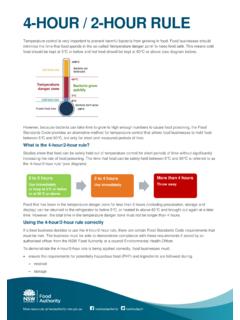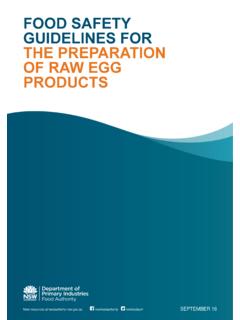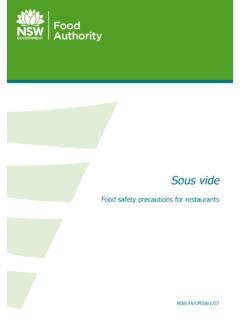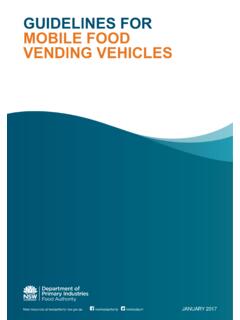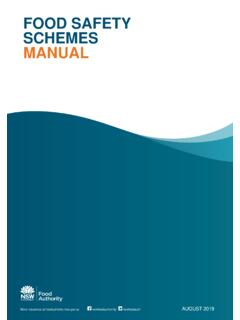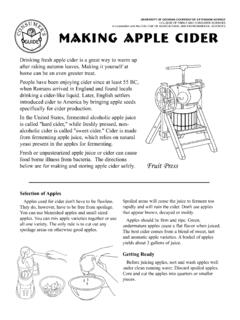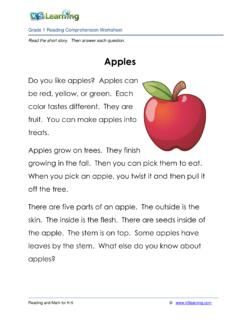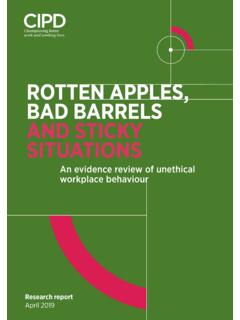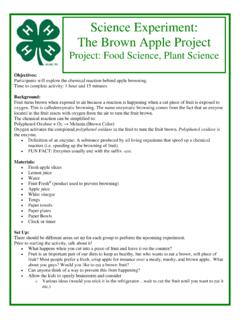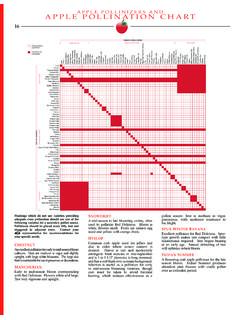Transcription of FOOD SAFETY DURING PREGNANCY
1 FOOD SAFETYDURING PREGNANCYMore resources at These foods should include a variety of Bread, cereals, rice, pasta, noodles and other grain foods mostly wholegrain and/or high fibre Vegetables and legumes Fruit Meat, fish, poultry, cooked eggs, nuts, seeds and tofu Milk, yoghurt, hard cheese and dairy alternatives with added calcium mostly reduced fatBoth you and your growing baby need extra nutrients, and the best way to get them is to eat a wide variety of nutritious foods and be as healthy as possible as early as possible in your healthy diet2 The Australian Dietary Guidelines by the Commonwealth Department of Health and the National Health and Medical Research Council (NHMRC) recommends the below food group intakes for pregnant women.
2 FOOD GROUPTRY TO CONSUME EACH DAYEXAMPLES OF 1 SERVING =GRAIN FOODS(including breads, cereals, rice, pasta, noodles)8 servings*(mostly wholegrain and/or high fibre)1 slice of bread medium bread roll or flat bread cup of wheat cereal flakes cup of cooked rice, pasta, noodles, cous cous or quinoaVEGETABLES & LEGUMES5 servings cup of cooked green or orange vegetables1 cup of green leafy or raw salad vegetables cup of cooked, dried or canned beans, peas or lentils medium starchy vegetable (potato, sweet potato or taro)FRUIT2 servings1 medium apple or banana2 small fruits (apricots, kiwi fruit or plums)1 cup of diced or canned fruit (no added sugar)PROTEIN(meat, fish, poultry, cooked eggs, nuts, seeds, tofu)3 servings90-100g raw weight of cooked meat (beef, lamb, pork)100g raw weight of cooked lean poultry (chicken or turkey)115g raw weight of cooked fish fillet or one small can of fish30g of nuts, seeds or peanut butter2 large eggs170g of tofuCALCIUM (milk, yoghurt, hard cheese and dairy alternatives)2 servings**(mostly reduced fat)250ml of milk (1 cup)250ml of soy, rice or other cereal drink fortified with at least 100mg per 100ml calcium40g (2 slices) of hard cheese200g of yoghurt*8 serves per day for women 18 years or under **3 serves per day for women 18 years or under Weight gain DURING PREGNANCY varies between women.
3 It is important to keep an eye on your weight, but don t diet or skip meals while you re pregnant. Your baby grows every day and needs you to maintain a balanced, healthy diet. If you are concerned about your weight, talk to your doctor or an accredited, practising PREGNANCY your body needs extra vitamins, minerals and nutrients to help your baby develop. The best way of getting most of these vitamins is though your , nutrients and minerals4It is important to talk to your doctor or an accredited, practising dietician before taking supplements. Some supplements (eg too much vitamin A) can be a risk to the is a B vitamin and is added to food or supplements as folic acid. Folate is important for your baby s development DURING early PREGNANCY because it helps prevent birth abnormalities like spina bifida.
4 The best way to make sure you get enough folate is to take a daily folic acid supplement of at least 400 micrograms ( g) one month before becoming pregnant and DURING the first three months of PREGNANCY . If you have a family history of neural tube defects you may need even more folate, so you should consult your is also important to eat foods that have added folic acid or are naturally rich in folate. Foods with folic acid added to them (fortified) include most breads, some breakfast cereals, and fruit juices. Check the nutrition information panel on the package to find out how much folate is naturally rich in folate include green leafy vegetables such as spinach and salad greens, broccoli, chickpeas, nuts, orange juice, some fruits and dried beans and increases your need for iron.
5 Your baby draws enough iron from you to last it through the first five or six months after birth so it s vital that you consume more iron while pregnant. The recommended daily intake (RDI) of iron DURING PREGNANCY is 27mg per day. Taking a supplement may help to meet this recommended intake but you should only take iron supplements under your doctor s foods Lean beef and lamb Poultry Fish Breakfast cereals fortified with iron Eggs Cooked legumes such as chickpeas, lentils, kidney and lima beans Dried fruits Green vegetables such as broccoli, cabbage and spinachEating foods high in vitamin C may also help you to absorb iron if you consume them at the same time. Try drinking some orange juice when eating green vegetables or legumes.
6 You also need to watch out for tea, coffee and cola because caffeine reduces the body s absorption of is essential to keep bones healthy and strong. DURING the third trimester of PREGNANCY , your baby needs a large amount of calcium as they start to develop and strengthen their bones. If you re not getting enough calcium in your diet, the calcium needed by your baby will be drawn from your own bones. To prevent this and the risk of osteoporosis later in life make sure you are getting enough calcium in your diet for both of recommended daily intake of calcium DURING PREGNANCY is 1000mg to 1300mg per day. Two and a half serves of dairy foods, such as milk, hard cheese, yoghurt or calcium fortified soy milk, should meet your daily requirements.
7 Pregnant women who are 18 years or under should aim to consume three and a half serves per you think you are not getting enough vitamins or nutrients please speak to your is important for everyone, but particularly for pregnant and breastfeeding women. Mild to moderate iodine deficiency DURING PREGNANCY can result in the baby having learning difficulties and affect the development of motor skills and hearing. In Australia, most breads, except organic varieties, are fortified with iodine which will help to address the iodine needs of most of the population. However, pregnant and breastfeeding women have higher requirements for iodine so some women may need to take a supplement. Talk to a doctor, midwife or accredited, practising dietitian for can cause nausea, vomiting, abdominal cramps, diarrhoea, fever and headache.
8 Pregnant women are not at an increased risk of contracting salmonellosis, but in rare cases it may trigger s advisable to avoid foods that contain raw egg and always cook meat, chicken and eggs thoroughly. In addition, the NSW Food Authority recommends that pregnant women do not eat any type of sprout including alfalfa sprouts, broccoli sprouts, onion sprouts, sunflower sprouts, clover sprouts, radish sprouts, snowpea sprouts, mung beans and soybean sprouts, whether raw or lightly is a type of bacteria found in some foods which can cause a rare but dangerous infection called listeriosis. If Listeria is transmitted to your unborn baby it can lead to miscarriage, premature labour, or stillbirth. Some foods may contain Listeria even when they ve been stored correctly so the best way to avoid listeriosis is to follow these guidelines: Try to eat only freshly cooked food and well washed, freshly prepared fruit and vegetables.
9 Leftovers can be eaten if they were refrigerated promptly and kept no longer than a day Avoid any foods that may have been made more than a day in advance, for example pre-made and pre-packaged salads, sandwiches and wraps Refer to the Safer eating DURING PREGNANCY tables (insert at back) for guidance on what foods to avoid DURING poisoningWhen you re pregnant, hormonal changes in your body lower your immune system which can make it harder to fight off illness and infection. Preventing foodborne illness and protecting yourself from other food risks DURING PREGNANCY is extremely , while uncommon in pregnant women, can occur if you eat undercooked meats, or unwashed fruit and vegetables, particularly from gardens with household cats.
10 Most commonly, however, infection is caused by touching cat faeces when cleaning the cat litter tray or contaminated soil in the garden. It is particularly important to avoid toxoplasmosis DURING PREGNANCY because it can lead to brain damage or blindness in your unborn food risksTips for avoiding toxoplasmosis Don t eat undercooked or raw meat Don t eat raw oysters, clams or mussels Don t drink unpasteurised goat s milk Always thoroughly wash fruit and vegetables Always wear gardening gloves when gardening Always wash your hands after touching animals, especially cats Avoid handling cat litter or animal faeces where possible (if necessary, wear gloves) If swimming in a lake or river, avoid swallowing the water If travelling overseas, avoid tap water8 Eating fish safelyFish are rich in protein and minerals, low in saturated fat, and contain omega-3 fatty acids.


